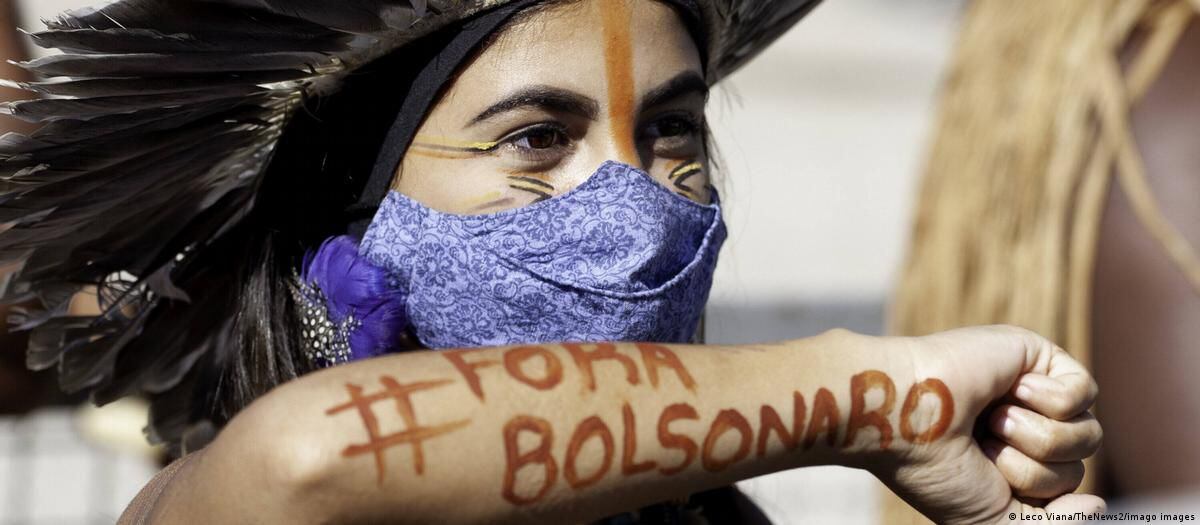
He Federal Supreme Court (STF) of Brazil This Wednesday, a crucial trial for indigenous peoples resumes, which could jeopardize the demarcation of hundreds of their ancestral lands, considered a barrier against deforestation.
during the call “trial of the century” for indigenous people, the magistrates of the highest court in Brasilia must validate or reject the thesis of the “time frame”which only recognizes as indigenous territories those occupied by them when the Constitution was enacted in 1988.
Last week, the Chamber of Deputies approved a bill validating that time limit, dealing a setback to leftist President Luiz Inácio Lula Da Silva, who promised to protect indigenous peoples. The text must still be submitted to a vote in the Senate.
In the STF, only two of its ten judges had voted – one in favor and the other against – when the trial was suspended in September 2021.
Awaiting the decision, hundreds of indigenous people from all over Brazil have been camping in the capital since the beginning of this week, to demand that the concept of the time frame be declared unconstitutional.
Specialists maintain that indigenous reserves play a fundamental role in the fight against global warming, as a bulwark against deforestation, triggered during the administration of former far-right president Jair Bolsonaro (2019-2022).
What is the trial about?
The demarcation guarantees indigenous peoples the right to occupy their ancestral lands and the exclusive use of natural resources, preserving their traditional way of life.
Specifically, the STF is debating a case on the Ibirama-Laklano territory, in Santa Catarina (south), which in 2009 lost its reserve status after a first instance ruling on the grounds that the communities were not living there in 1988.
This trial, which can take weeks, is considered key because the verdict will have widespread repercussions and could affect many other disputed lands.
In April, Lula approved six new indigenous reserves, the first in five years, as Bolsonaro made good on his promise not to demarcate “not an inch more” of land during his tenure.
What do the parties argue?
The 1988 Constitution guarantees indigenous “the original rights over the lands they traditionally occupy, which must be demarcated and protected by the State”.
These peoples consider that the Constitution recognizes their rights without foreseeing any “time frame” and they affirm that in many periods they were displaced from their territories, especially during the military dictatorship (1964-1985), with which it would be impossible to determine their presence in 1988.
Representatives of agribusiness, the engine of Brazilian growth, believe instead that the “temporary framework” would bring “legal security” to large rural producers.
They argue that in Brazil, with a population of 214 million, the 900,000 indigenous people already own a lot of territory – a 13% of the enormous area of the country-, and that if the thesis is not adopted, that percentage will amount to 28%a projection however questioned by experts.
What consequences can the ruling have for indigenous people?
If the thesis of the temporary framework is approved, the indigenous peoples may be expelled from their lands if they do not prove that they were settled there when the Constitution was promulgated.
According to the NGO Instituto Socioambiental, almost a third of the more than 700 indigenous reserves already delimited in Brazil – the majority in the Amazon – could be affected.
Experts warn that indigenous peoples, who have an oral tradition, would also have to prove facts dating back 35 years.
What can happen to the bill?
According to Helio Wicher Neto, a lawyer specializing in socio-environmental law, the approval of the bill on the “time frame” in the Chamber of Deputies it has a “more political than legal” scope, since it is the supreme court that will determine whether or not it is constitutional.
“If the STF declares the thesis of the temporary framework unconstitutional, so will any bill that uses this thesis as a criterion for the demarcation of indigenous reserves”he told AFP.
If it reaches the Senate after an unfavorable decision of the Supreme Court, this text “The instance of the Constitution and Justice Commission should not pass”he pointed.
Source: AFP
Source: Gestion
Ricardo is a renowned author and journalist, known for his exceptional writing on top-news stories. He currently works as a writer at the 247 News Agency, where he is known for his ability to deliver breaking news and insightful analysis on the most pressing issues of the day.












